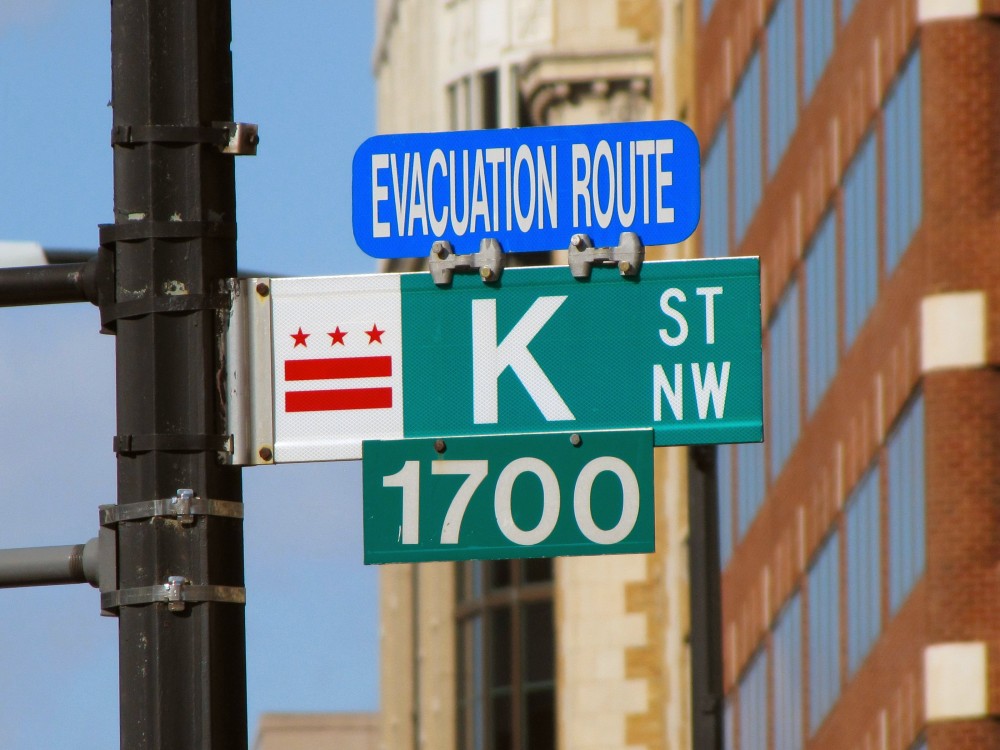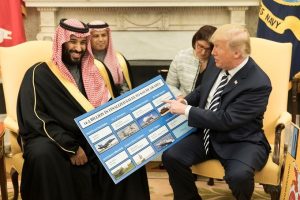by Eli Clifton
Public image isn’t something one can always control, but Saudi Arabia is spending millions of dollars on Washington lobbyists and PR firms to improve the Kingdom’s reputation in the West. The execution of Shiite leader Sheik Nimr Baqr al-Nimr, followed by an attack on the Saudi embassy in Tehran and the Kingdom’s severing of diplomatic relations with Iran, would seem to offer few upsides for the Saudi government. Riyadh’s behavior comes across as a desperate Hail-Mary pass to isolate Iran at the expense of regional efforts to negotiate a de-escalation of the Syrian civil war and defeat the Islamic State in Syria and Iraq.
Jim Lobe pointed out that Washington’s neoconservatives have jumped to Riyadh’s defense, apparently subscribing to the philosophy that “the enemy of my Iranian enemy is my friend.” But, as The New York Times editorial board wrote on Monday, “The execution of the popular Shiite cleric Sheikh Nimr al-Nimr and 46 other prisoners on Saturday was about the worst way Saudi Arabia could have started what promises to be a grim and tumultuous year in the kingdom and across the Middle East.”
The Times may be stating the obvious, but Saudi Arabia pays millions of dollars per year to American public relations firms to paint the Kingdom in the most positive light. These firms have their work cut out for them. Indeed, that PR machine is doing all it can to spin the Saudis’ execution of a political dissident and blatant effort to fan sectarian tensions as somehow the fault of anyone but Saudi Arabia.
Defending the Kingdom
Fahad Nazer, a non-resident fellow at the Saudi- and UAE-funded Arab Gulf States Institute in Washington, was quoted in Politico defending the executions, saying, “The primary message appears to be aimed at Saudi Arabia’s own militants, regardless of their sect.” And the Times published a quote from Saudi commentator Salman al-Ansari, who “accused Sheikh Nimr, who was in his mid-50s, of organizing a ‘terrorist network’ in Shiite areas in eastern Saudi Arabia and compared him to a Qaeda ideologue who sanctioned the killing of security forces.” The Podesta Group, a public relations firm hired by the Saudi government, provided Ansari.
So, how much money is in it for the PR professionals who are burning the midnight oil to put a positive spin on Saudi Arabia’s decision to start the year with a mass execution of 47 prisoners? Foreign Agent Registration Act (FARA) filings submitted by Saudi government contractors in Washington reveal an expensive PR operation.
Firms listed as “active foreign principals for Saudi Arabia” on the FARA website include: DLA Piper, Targeted Victory, Qorvis/MSLGroup, Pillsbury Winthrop, Hogan Lovells, and the Podesta Group. Qorvis/MSLGroup appears to the biggest recipient of Saudi money. Their FARA filings reveal what appears to be a $240,000 per month retainer with the Kingdom for services described as:
Drafted and/or distributed news releases, weekly newsletters, fact sheets and/or speeches to promote Saudi Arabia, its commitment towards counterterrorism, peace in the Middle East, and other issues pertinent to the Kingdom.
Qorvis/MSLGroup also reports it “created a Twitter account for a senior Saudi official,” and “managed a website on Operation Renewal of Hope,” Saudi Arabia’s 10-month-old military intervention in Yemen. Moreover, it farms out $55,000 per month of work from the Saudi account to Targeted Victory, LLC, a digital consulting firm.
The Podesta Group received $200,000 from the “The Center for Studies and Media Affairs at the Saudi Royal Court” for approximately one month of “public relations services” from August to September. The Podesta Group, cited in the Times as working for the Saudi government, is listed as an “active” foreign agent for Saudi Arabia on the FARA website, suggesting that the contract is ongoing.
For services that include advising the Saudi government on “media reports and related public affairs developments” and undertaking “specific advocacy assignments with regard to litigation, legislative, regulatory, public policy or public affairs matters, and/or in other activities,” Hogan Lovells receives $60,000 per month in fees.
DLA Piper receives a fee of $50,000 per month for services including “[contacting] Members of Congress, congressional staff and Executive Branch officials in connection with strengthening the ability of the United States and Saudi Arabia to advance mutual national security interests.”
Pillsbury Winthrop Shaw Pittman LLP collects a fee of $15,000 per month for “legal and non-legal services to Saudi Arabia in conjunction with information gather on U.S. Middle East policy.”
Assuming that these contracts are ongoing, as the FARA site indicates, and the Targeted Victory LLC fees were already included in the Qorvis/MSLGroup fees, Saudi Arabia is spending $565,000 per month for its lobbying operations in Washington, not including expenses. That’s $6.78 million per year in fees for PR, lobbying, and legal representation in the U.S. capitol.
Who Else Benefits?
Saudi Arabia is certainly a prize catch for K Street firms looking for hefty monthly retainers from foreign clients. But the U.S. military-industrial complex rakes in the biggest profits from the country currently fanning the flames of sectarian conflict in the Middle East.
Saudi Arabia is looking to complete a $1.29 billion purchase of U.S. weapons, in part to replenish bombs and missiles used in Yemen. Reuters reports that a $11.25 billion purchase of Lockheed Martin warships is also expected to move forward, according to “military and industry sources.” The Congressional Research Service reports that Saudi Arabia topped the list of arms transfer recipients among developing nations from 2007 to 2014 with $86 billion in agreements, giving US defense contractors ample incentive to lend their own lobbying and PR firepower to the Kingdom’s efforts to manage public opinion.
“The tangled and volatile realities of the Middle East do not give the United States or the European Union the luxury of choosing or rejecting allies on moral criteria,” the Times editorial concluded, but that “cannot mean condoning actions that blatantly fan sectarian hatreds, undermine efforts at stabilizing the region and crudely violate human rights.”
Saudi Arabia’s extensive contracts with Washington’s biggest PR firms—and the additional PR help it gets from U.S. defense contractors—are designed to make those actions somehow palatable inside the Beltway. But in the end they will only make the White House’s efforts to navigate the Sunni-Shia divide all the more difficult.






Thanks Eli Clifton. With money anyone can buy anything and anybody in America! Wondering if AIPAC is being financed by SA too?
Monty, with the legalizing of dark money anybody who claims to be a non-profit can finance elections here. Otherwise they have to register with the FEC, though I think that’s pretty toothless. As for Aipac, there are plenty of billionares here that are helping them out
The House of Saud is a savage barbaric regime and the US should have nothing to do with them. Same with Israel.
@Mike Schoenber: Considering Mr. Clifton previously ‘reported’ for ThinkProgress, surely he knows all about “non-profit” “dark money”. Right, Mr. Clifton? You can tell Mr. Schoenber all about that? Maybe that’s why you list yourself having previously reported for ThinkProgress? Is that why you’re here talking about people Tony Podesta, and his Podest Group?
Mr. Schoenber, if you really are interested in ‘non’ profit dark money you should read March 17, 2005 piece by Ryan Sager, titled, “Buying Reform”. Maybe Mr. Clifton would too.